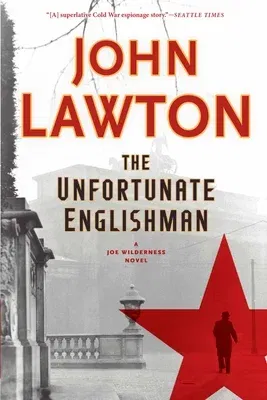Berlin, 1963. East End-Londoner turned spy Joe Wilderness has had better
days. He is sitting in a West Berlin jail, arrested for shooting someone
he thought was about to kill him. His old boss, Lieutenant Burne-Jones
of MI6, comes to Berlin to free him, but only under the condition that
he rejoin British Intelligence. The knowledge that Wilderness gained of
Berlin's underworld while working the black market just after World War
II will prove useful to Queen and country now that the city has become
the epicenter of the Cold War, dividing the world in two with its wall.
On the other side of the Iron Curtain, another MI6 man, Geoffrey
Masefield, is ruing the day he first agreed to be a spy. In the
beginning, it had all seemed so simple, so glamorous: the international
travel, the top secret files, the vodka, the women. . . . But now
Masefield is stuck in Lubyanka, the KGB's Moscow prison, waiting for a
lifeline from his former employer. Meanwhile, over in England, a Russian
spy is pining for his homeland. Having lived as Bernard Forbes Campbell
Alleyn for years and taken a wife and had two daughters under that
alias, he's now been exposed as KGB Captain Leonid Liubimov. Arrested
for treason and then for espionage, he is in prison at Wormwood Scrubs,
London. The only ticket out for these two men is a spy exchange.
Posted back to Berlin, Wilderness is to oversee the exchange of
Masefield and Liubimov, but his black market nous hasn't diminished.
There's money to be made and ten thousand bottles of fine Bordeaux that
Wilderness hasn't forgotten about. A brilliantly evocative novel from a
writer regularly compared to John le Carré, The Unfortunate Englishman
is a gripping tale of Cold War espionage, and the best laid plans of
unfortunate men.

